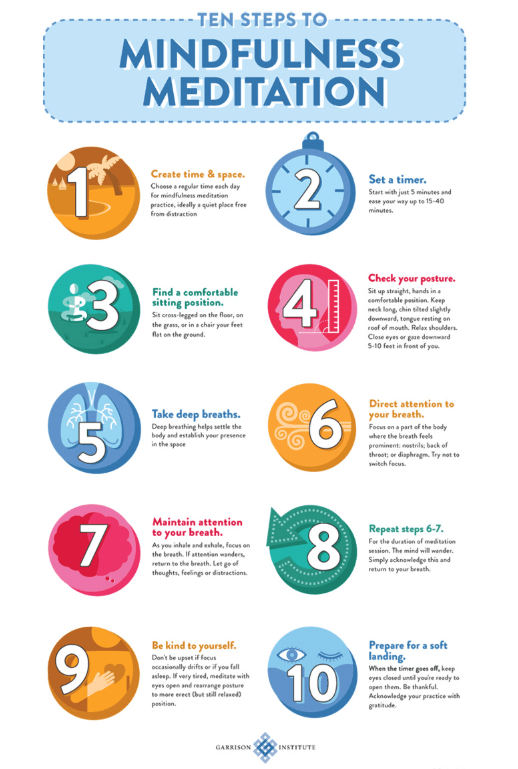Can ADHD Be Managed Naturally?
Attention Deficit Hyperactivity Disorder (ADHD) affects both children and adults, influencing attention span, impulse control, and emotional regulation. While medication is a common treatment, many individuals seek natural ways to manage ADHD to improve focus and concentration with fewer side effects.
Managing ADHD naturally does not mean ignoring professional care. Instead, it involves supportive lifestyle changes—such as nutrition, sleep, exercise, and structured routines—that can significantly enhance attention, productivity, and emotional balance when used alongside or independent of medication.
This guide explores science-supported lifestyle and dietary strategies that help manage ADHD naturally and sustainably.
Understanding ADHD and Focus Challenges
ADHD is linked to differences in brain chemistry, particularly involving dopamine and norepinephrine, which affect motivation, focus, and reward processing. These differences can lead to:
- Difficulty sustaining attention
- Distractibility
- Restlessness or mental fatigue
- Trouble organizing tasks
Natural strategies aim to support brain health, stabilize energy levels, and reduce environmental triggers that worsen symptoms.
Lifestyle Changes That Support Focus and Concentration

4
1. Regular Physical Activity
Exercise is one of the most effective natural tools for managing ADHD. Physical activity increases dopamine and serotonin levels, which directly support focus and mood.
Best options include:
- Aerobic exercise (walking, cycling, swimming)
- Martial arts or yoga (structure + movement)
- Team sports (for children and teens)
Tip: Even 20–30 minutes daily can noticeably improve concentration.
2. Prioritizing Quality Sleep
Sleep deprivation worsens ADHD symptoms by impairing attention, memory, and emotional control.
Healthy sleep habits:
- Consistent bedtime and wake time
- Limiting screens 1 hour before bed
- Keeping the bedroom dark and quiet
Adults with ADHD often benefit from structured wind-down routines to calm racing thoughts.
3. Mindfulness and Meditation
Mindfulness strengthens attention control and emotional regulation. Studies show that regular mindfulness practice can reduce impulsivity and improve task completion.
Simple practices include:
- 5–10 minutes of breathing exercises
- Guided body scans
- Focused attention meditation
Over time, mindfulness helps the brain pause before reacting, a key challenge in ADHD.

4. Creating Structured Daily Routines
Predictability reduces mental overload. ADHD brains function best with clear structure.
Helpful strategies:
- Use planners or digital calendars
- Break tasks into small steps
- Set visual reminders
Consistency lowers stress and conserves mental energy for focus.
Dietary Strategies for Managing ADHD Naturally

4
1. Prioritize Protein-Rich Meals
Protein supports neurotransmitter production and stabilizes blood sugar—both crucial for sustained attention.
Good protein sources:
- Eggs
- Fish
- Lean meats
- Greek yogurt
- Legumes
A protein-rich breakfast can significantly improve morning focus.
2. Omega-3 Fatty Acids for Brain Health
Omega-3s play a vital role in brain function and have been linked to improved attention and reduced hyperactivity.
Best sources include:
- Salmon and sardines
- Walnuts
- Chia and flaxseeds
Some individuals benefit from omega-3 supplements, but dietary sources are preferred when possible.
3. Limit Sugar and Refined Carbohydrates
Rapid blood sugar spikes can worsen inattention and irritability.
Reduce intake of:
- Sugary snacks
- Processed baked goods
- Sweetened beverages
Instead, choose complex carbohydrates like whole grains and vegetables for steady energy.
4. Micronutrients That Support Focus
Certain vitamins and minerals are linked to attention and cognitive performance:
- Magnesium: supports calm focus
- Iron: essential for dopamine synthesis
- Zinc: linked to impulse control
Before supplementing, consult a healthcare professional—especially for children.
Reducing Environmental Triggers
Small changes in environment can yield big improvements in focus.
Helpful adjustments include:
- Declutter workspaces
- Use noise-canceling headphones
- Work in short, timed sessions (Pomodoro technique)
Minimizing distractions allows the brain to stay engaged longer.
Natural Approaches vs. Medication
Natural strategies do not replace medical treatment for everyone. According to Centers for Disease Control and Prevention, ADHD management should be individualized.
Many people find the best results from a combined approach:
- Lifestyle and diet changes
- Behavioral therapy
- Medication (when needed)
Natural methods often enhance the effectiveness of other treatments.
ADHD in Adults vs. Children: Lifestyle Differences
While the core principles are similar, application differs:
For Children
- Emphasize routine and sleep
- Encourage outdoor play
- Limit screen time
For Adults
- Focus on time management tools
- Stress reduction techniques
- Nutrition consistency
Tailoring strategies to age and lifestyle improves long-term success.
Frequently Asked Questions (FAQs)
1. Can ADHD really be managed naturally?
Yes, many people experience meaningful improvements through lifestyle and dietary changes, especially when symptoms are mild to moderate.
2. How long do natural ADHD strategies take to work?
Some benefits, like improved sleep or energy, appear within weeks. Cognitive improvements usually develop over 1–3 months.
3. Are supplements safe for ADHD?
Some may help, but supplements should always be discussed with a healthcare provider.
4. Does exercise help ADHD immediately?
Yes. Exercise often produces short-term focus improvements lasting several hours.
5. Is caffeine helpful or harmful for ADHD?
Small amounts may improve focus for some adults, but excess can increase anxiety and restlessness.
6. Can diet alone replace ADHD medication?
Diet alone is usually not sufficient for severe ADHD but can significantly support overall treatment.
Conclusion: A Holistic Approach to Managing ADHD Naturally
Managing ADHD naturally is about creating a supportive environment for the brain to function at its best. Through intentional lifestyle habits, balanced nutrition, movement, and structure, individuals with ADHD can experience meaningful improvements in focus, concentration, and emotional regulation.
While natural strategies are not a cure, they empower individuals to take an active role in their well-being and build sustainable habits that support long-term success.
